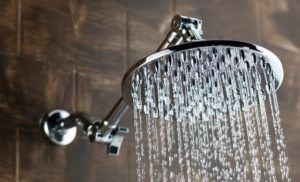One of the most effective cost cutting measures in any American home today is a reduction in the use of hot water. Apparently, water heating is ranked as the second largest energy consumer, right after HVAC systems, in a typical U.S. household. If you wish to lower your home energy bill by almost a fifth, you need to implement some effective measures to reduce hot water usage and wastage. In addition to lowering your energy bill, you will also be doing your home and the environment a big favor — promoting sustainability and resource conservation. There are several proven strategies that can help you reduce your home energy usage significantly. The following are some of the most applicable tips that can help you reduce your home hot water costs.
Fix Leaks Immediately
This is the simplest and perhaps the most ignored method of reducing, not only hot water usage, but all home water usage and wastage. However, it is even more effectual in reducing utility costs by curbing hot water usage in the home. Leaking pipes and fixtures like showerheads and faucets can cause a lot of water loss in the long run. Fixing a leak as soon as possible is a very effective strategy towards the admirable objective of promoting a greener home and planet. If you have a leaking water heater, get a replacement. Consult any reliable plumber, who offers water heater repair in DC, for advice on the most energy efficient water heater options available in your locality and according to your hot water needs.
Buy Low-Flow Fixtures
Fixtures are some of the most wasteful installations in any plumbing system. Luckily, their functional excesses can be fixed through simple modifications and by making insightful choices when buying them. For starters, showerheads should be selected according to climatic regions. There are two main types of showerheads: laminar-flow, which is suitable for humid climates and aerating showerhead, which is suitable for dry regions. In either case, choose a low-flow model to ensure optimal water efficiency. Similarly, choose faucets with low-flow aerators to minimize water loss. If you already installed some inefficient faucets, you can just replace the aerators to control hot water usage — you can even install shutoff valves on the faucets to stop water flow without affecting the temperature.
Insulate Your Water Heater Tank And Pipes
Insulating the hot water reservoir in conventional storage water heaters can ensure significant savings on energy consumption. Reduce standby heat loss by insulating both the storage tank and the pipes. Modern storage water heaters have insulated tanks and piping systems to minimize heat loss. If your water heater is “naked,” consult a professional plumber for insulation solutions.
Install Energy-Efficient Appliances
One of the most cost-effective strategies to reduce home energy usage is by purchasing energy efficient appliances. Washing dishes and clothes by hand leads to massive energy losses due to the frequent water heating activities. In order to mitigate this effect, you should install an energy efficient dishwasher and then operate it properly with full loads. Modern dishwashers feature amazing energy saving elements, such as booster heaters and cycle selections. Inefficient clothes washers are very expensive to operate. Install an efficient clothes washer and try to use cold and warm water as much as possible; unless it’s absolutely necessary. Like dishwashers, modern clothes machines have fancy features to ensure energy efficiency, such as spin-drying and front-loading clothes washers.




